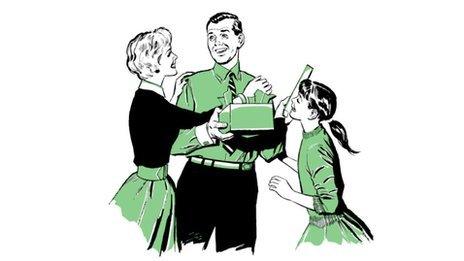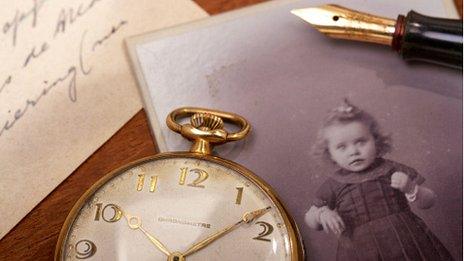Nostalgia 'makes people spend more money'
- Published

A feeling of nostalgia makes people part with money more easily, according to academics studying patterns of consumer behaviour.
It explains the repeated use of nostalgia and "retro" themes in advertising, say the researchers.
It also makes it more likely that people will donate to charity, with a feeling of warm nostalgia appearing to lower barriers to giving.
The researchers say nostalgia is used to sell everything from food to toys.
The study, to be published in the Journal of Consumer Research, examines why the use of nostalgia seems to be so widespread in marketing campaigns.
'Wistful'
It describes how some major brands design nostalgic, retro-versions of their own products to tap into these emotions. There are advertising campaigns for food, music, toys, alcohol and films that depend upon evoking a "wistfulness for the past".

Nostalgia is a sales tactic that reduces resistance to spending, say researchers
The researchers, from the University of Southampton, Grenoble Ecole de Management and the University of Minnesota, argue that an atmosphere of nostalgia has a capacity to "weaken consumers' grasp on their money".
Cultivating past memories and bygone eras promotes a sense of "social connectedness", say the researchers, in which old-fashioned community values and relationships with other people are seen as being more important.
In such an atmosphere, money is seen as less important - and it seems that such a mood reduces resistance to spending.
"Their ability to prioritise and keep control over their money becomes less pressing," says the research.
"In other words, someone might be more likely to buy something when they are feeling nostalgic," say the researchers, Jannine Lasaleta, Constantine Sedikides and Kathleen Vohs.
Even when nostalgia was a rather melancholy mood, such as evoking memories of a lost childhood, the researchers suggested that it was associated with a lowered sense of wanting to hold on to money.
This theory was tested by a series of consumer experiments, measuring reactions to different types of advertising, willingness to donate to charity and readiness to put up with discomfort to get financial rewards.
The researchers say that the common theme is that creating an atmosphere of nostalgic remembrance weakens interest in money - and that conversely it makes it easier to sell products to people lulled into this reflective mood.